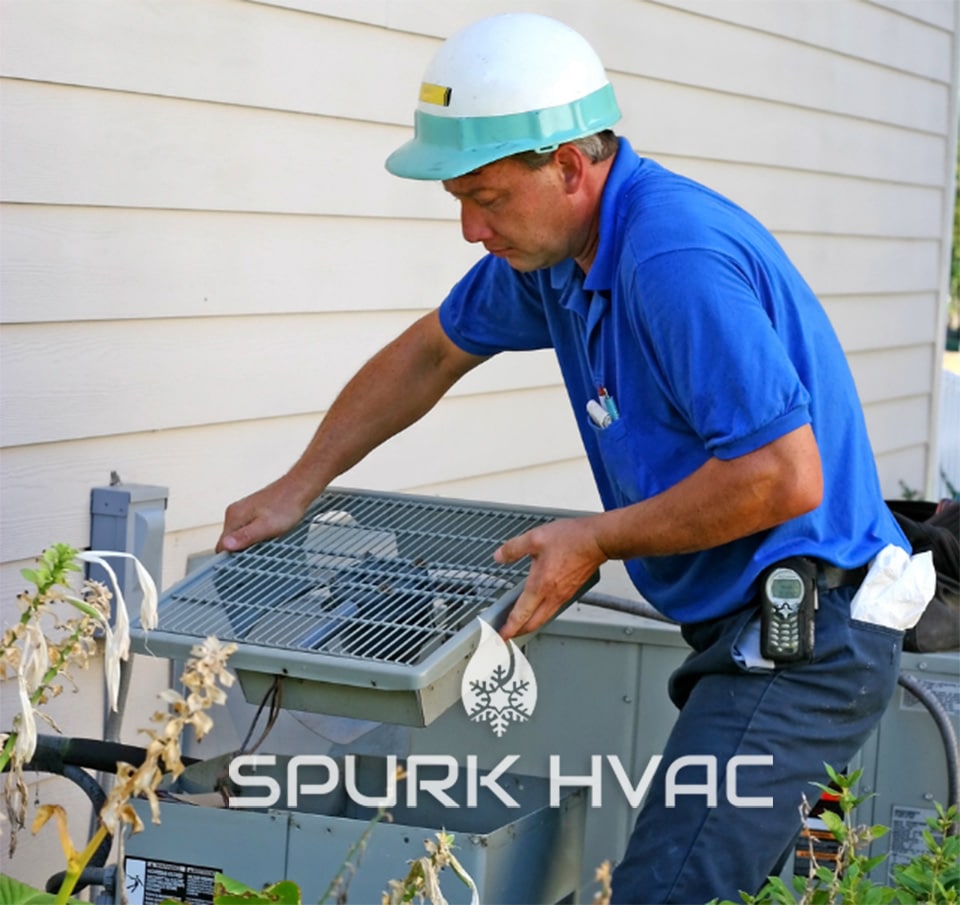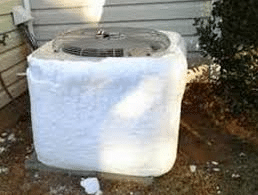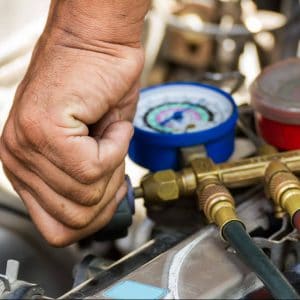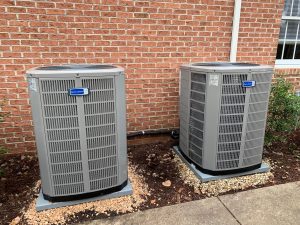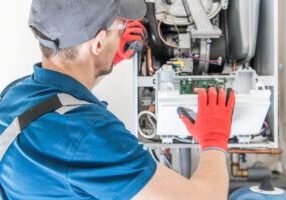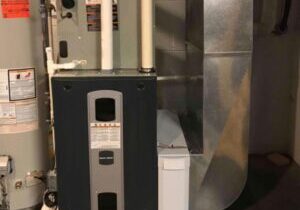As temperatures slowly begin to rise, so will the need for your air conditioner. Now is a great time to learn about recharging your air conditioner and make sure it is in top shape and ready to go.
With yearly air conditioner maintenance and regular filter changes, your air conditioning should function properly and keep your home cool and comfortable all summer long. But if warm or room-temperature air is coming out of your vents, something’s wrong. It could be that your air conditioning unit needs a recharge.
When you hear someone talking about recharging your air conditioning unit, they’re talking about adding more refrigerant to the unit and ensuring the refrigerant is properly pressurized within the refrigerant system. If you need Freon for your air conditioner, you’ll need to contact a professional heating and cooling technician – under EPA regulations, only a certified professional can recharge your home’s HVAC system.
*If you happen to have a system that still uses R-22, we highly recommend replacing the unit. You can recharge your air conditioner. However, as the R-22 supplies dwindle, the cost will continue to rise. The production and import of R-22 have been outlawed in the United States. Read more on R-22 here.
Here’s what you need to know about recharging your air conditioning unit that uses R-410A or another modern refrigerant.
How Often Should You Be Recharging Your Air Conditioner?
The quick answer is never. The refrigerant systems within an air conditioning system are sealed. This means that residential air conditioning units are not designed to need a recharge. If your unit needs a recharge, this means that there is a leak somewhere within that refrigerant system.
If your unit’s refrigerant system does spring a link, that air conditioning unit will need to be repaired, and the refrigerant system will need to be refilled.
How Can You Tell If There May Be A Leak?
1.) Your unit starts blowing warm air
Most of the time, when an air conditioning unit is leaking refrigerant, it will blow warm air. That’s because the refrigerant is no longer there to cool the air passing through your unit.
But it won’t go from cool to warm overnight as it might in the case of, say, a broken thermostat. It will slowly get warmer over time as your unit’s refrigerant leaks out, so you’ll notice your unit’s effectiveness diminishing over weeks or months.
2.) Ice Build Up
Another sign that your refrigerant is leaking is the buildup of ice or frost in or on the unit. As strange as it sounds, your air conditioning unit can freeze even in the hottest of temperatures. That’s because the refrigerant gas cools everything it touches to the point of freezing – that’s how it cools outside air to pump into your home.
When you look inside your unit, it’s normal to see some frosty-looking coiled pipes. Those are your condenser coils, a primary part of the refrigerant system. If everything inside your unit looks frozen, or you’re seeing frost on the outside of the unit, it could be the result of a leak.
How Much Does It Cost To Recharge?
The cost of recharging your air conditioner depends on the cause of the leak. As with any leak, we highly recommend fixing the leak before performing any type of refrigerant recharge. If you don’t fix the leak it’s only a matter of time before your air conditioning unit will need to be recharged again.
The cost will also depend on your unit and the type of refrigerant it takes. As stated above, if you still have an R-22 unit, it will become increasingly more expensive over time as R-22 supplies dwindle.
Should I Repair or Replace My Air Conditioner?
Should you repair your A/C unit or replace it altogether? An industry rule of thumb is any unit that is anywhere from 15 years old or older and leaking refrigerant may need to be replaced. We see it every year — even if it is repaired, it is reaching the end of its lifespan, and something else will most likely go wrong with it soon. Read more on whether to repair or replace your air conditioning unit.
ABOUT SPURK HVAC
Spurk HVAC was formed in 2018 and is located in Warrendale, Pennsylvania. We proudly serve Cranberry Twp., Wexford, Gibsonia, Mars, and the surrounding areas. We are a Mitsubishi Diamond Contractor.
We service all makes and models. If you are seeking a heating repair, heating system replacement, air conditioner repair, air conditioning maintenance, air conditioning replacement, or any other heating & cooling services. Whether you are looking for residential or commercial HVAC services, we look forward to any and all opportunities to become your preferred HVAC contractor.



